Even before the end of Lady Gaga's 13-minute extravaganza that included a medley of her hits, aerial work, polished choreography, some of the strongest actual live singing ever performed at the Super Bowl halftime show, and a final leap into the abyss, the praise and criticism rolled in. An out bisexual woman and an avowed activist (Gaga held a solo protest outside Trump Tower on election night), she was alternately praised by the right for remaining apolitical and bashed by the left for presumably failing to toss a Molotov cocktail with Donald Trump's face on it at Mike Pence (who was in attendance) even as she sang the words, "No matter gay, straight, or bi, lesbian, transgendered life," from the largest live stage in the world.
To assert that Gaga's set was, for better or worse, in no way political is an extreme view, especially since she most purposefully sang a few lyrics from social activist and songwriter Woody Guthrie's protest song "This Land Is Your Land." In the interest of extreme views, it can be argued that Lady Gaga's Super Bowl set was deeply subversive and that every choice she made was intended as quiet resistance. Here are six points illustrating her protest.
1. Her presence.
A consummate performer, button-pushing performance artist, fashion icon, ardent Hillary Clinton surrogate, and activist, Lady Gaga is also an openly bisexual woman, something people tend to forget although she reiterates it every now and then for those who forget or refuse to remember. Her very presence at the venue could be interpreted as an act of resistance. There's likely nothing that gets under Mike Pence's skin more than a woman who's part of the LGBT community who's also been known to challenge gender norms.
2. Her segue from "God Bless America" to "This Land Is Your Land" as one big nuanced protest.
Rest assured, there are no accidents with Lady Gaga's art. She may incorporate a pastiche of fashion and homages to various performers into her work (David Bowie, Klaus Nomi, and any number of drag queens, to name a few) that may appear random, but her moves are calculated.
She kicked off her Super Bowl performance with a few a cappella bars of Irving Berlin's "God Bless America" before segueing into Guthrie's "This Land Is Your Land," a song he wrote in part as a rebuke of Berlin's nationalistic anthem. Guthrie, a Depression-era wanderer and music maker, had just returned from traveling the country where he'd encountered labor camps, deep prejudice, and starving people when he wrote "This Land Is Your Land" as a direct response to Berlin's song, according to Slate.
For those wary that Gaga's "This Land Is Your Land" protest was too subtle, it's useful to also recall that Guthrie wrote scathing words, possibly pieces of a song or poem, for his onetime landlord Fred C. Trump (Donald Trump's father).
Guthrie wrote, "I suppose / Old Man Trump knows / Just how much / Racial Hate / he stirred up / In the bloodpot of human hearts / When he drawed / That color line Here at his / Eighteen hundred family project," Guthrie wrote of the Brooklyn apartment complex Fred Trump owned.
Still not convinced that Gaga's invocation of Guthrie's song wasn't a call to Trump? Consider this original lyric from the song that practically anticipates Trump's border wall:
"As I went walking I saw a sign there / And on the sign it said 'No Trespassing' / But on the other side it didn't say nothing / That side was made for you and me."
During the opening portion of her performance, Gaga also quoted the Pledge of Allegiance, with particular emphasis on the words "liberty and justice for all."
3. "Poker Face" has a new meaning.
One of Gaga's first mega-hits, it was also the first song of hers that she sang at length at the Super Bowl, and despite its lyrics asserting "He can't read my poker face," it can be argued that the song was used to challenge the audience to look past the obvious and to attempt to read her signs. No protest? Think again, she seemed to say with the song.
Also, the lyrics are rooted in her being queer. She once explained that the song was her way of working out the fact that she continually fantasized about women whenever she had sex with one guy she dated.
Still, it seems apparent that the Super Bowl version of "Poker Face" was a direct message to those on the right who assumed her energetic performance was just that and not also a show of solidarity to her friend Hillary Clinton.
"Can't read my, can't read my, no he can't read my poker face (she's got me like nobody)," Gaga sang, that last line surely as a nod to her continued allegiance to Clinton.
4. The deep inclusivity of "Born This Way."
Many on the left have criticized Gaga for failing to send a clear message to Trump and his administration. But what could a single message be to counter his widespread hate, aside from a middle finger to the air? Under Trump, there are so many of facets of freedom and American life under siege that it would have been impossible to pick a single message to address the Muslim ban, the imminent dismantling of education, threats to the environment, Black Lives Matter, an assault on women's rights, and threats to LGBT people, so inclusivity was her message. If there's one word that sums up what Trump is not, it's "inclusive."
Luckily, Gaga already had "Born This Way" in her canon, which addresses standing up to bullies and embracing difference and equality, ideas completely antithetical to Trump's campaign of fear and loathing.
The words to "Born This Way include "No matter gay, straight, or bi / Lesbian, transgendered life / I'm on the right track baby / I was born to survive / No matter black, white or beige / Chola or orient made / I'm on the right track baby / I was born to be brave."
It was likely the first time "lesbian, transgender, gay, and bi" were ever uttered from the Super Bowl stage, and that in itself is radical.
5. "A Million Reasons" reimagined as a love song to America.
As Gaga sat down at the keyboard to play the only song she sang off of her new album, Joanne, she asked, "How you doing tonight, Texas, America, world? We're here tonight to make you feel good."
That Gaga's greeting began with the micro and moved to the macro was intentional. Extrapolating from Texas to the world was her way of reminding the audience of its place on the world stage while also suggesting a unifying coalescence of people around a single event.
While "A Million Reasons" is ostensibly a love song to a certain person, Gaga adapted its meaning for the Super Bowl into a plea to America to show its best side:
"I bow down to pray / I try to make the worst seem better / Lord, show me the way / To cut through all his worn out leather / I've got a hundred million reasons to walk away / But baby, I just need one good one to stay."
She even sang a lyric that addresses the controversy of the truth in Trump's America. "And if you say something that you might even mean / It's hard to even fathom which parts I should believe," she sang from the bottom half of the song's second verse.
To end the song, she stepped away from the keyboard and sauntered into a diverse sea of people in search of something or someone. Her intentional choice to pull a woman of color from the audience and hug her bolstered her message of love and inclusivity, which could not be further from Trump's modus operandi.
6. Overall queer and camp sensibility.
The Super Bowl is no stranger to camp sensibility at its halftime show. For instance, Katy Perry rode in on a giant lion puppet singing "Roar" and later danced with men in shark costumes, in one of the most gloriously campy halftime sets in history. But Gaga's performance wasn't just campy, it was deeply queer, from her eschewing of gender norms with her costume nod to David Bowie's Ziggy Stardust costume to the lavender capes her dancers wore while twirling around the stage for "Born This Way."
If a bisexual woman in a Bowie costume singing out the words to the letters of the "LGBT" alphabet while lavender-caped dancers twirl and grind behind and beside her, with rainbow lights illuminating the audience during the "Bad Romance" finale on the world's largest stage, doesn't sound subversive to you, then we want to live in your world.


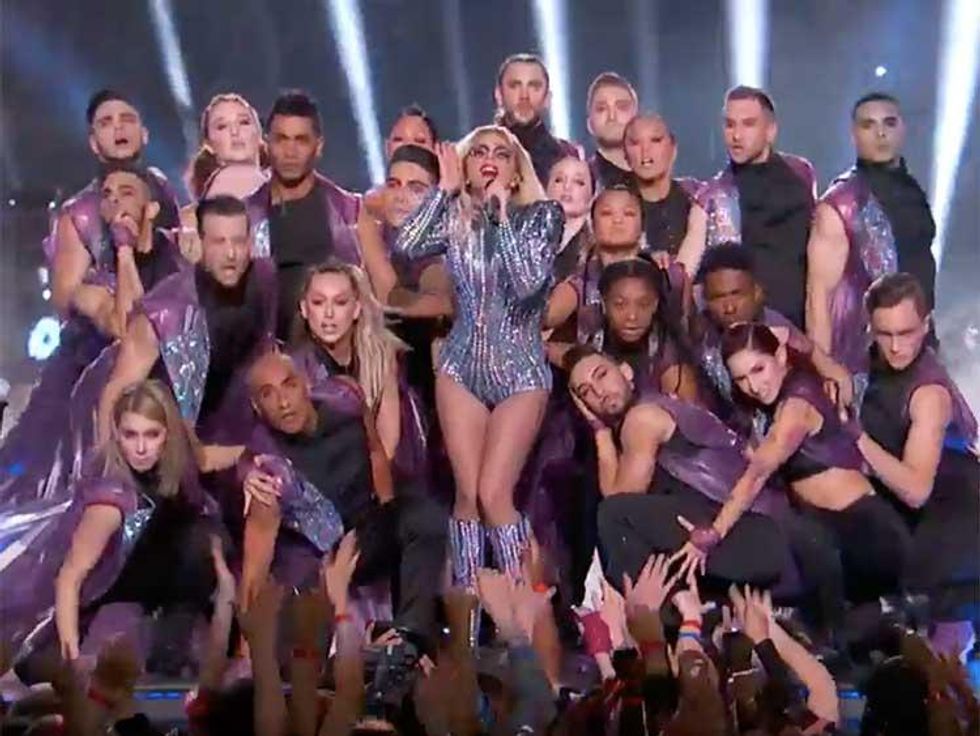
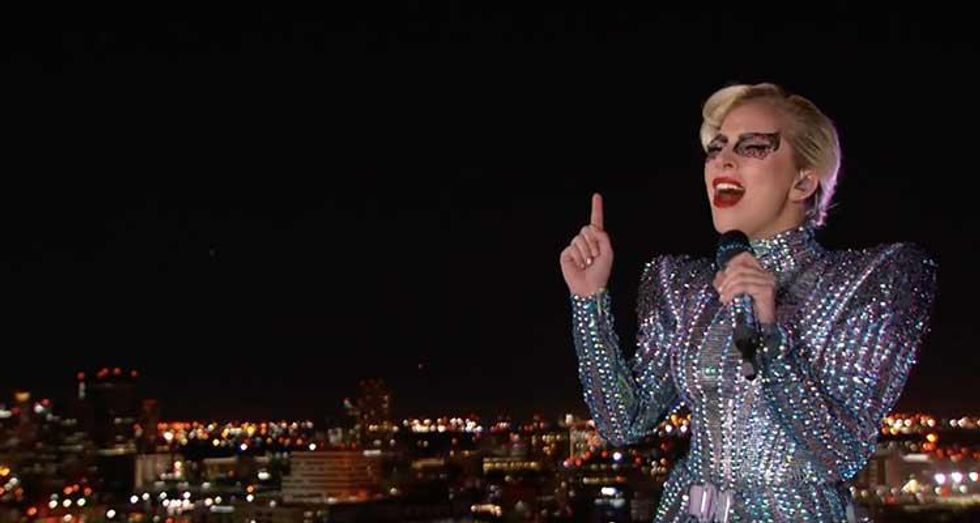
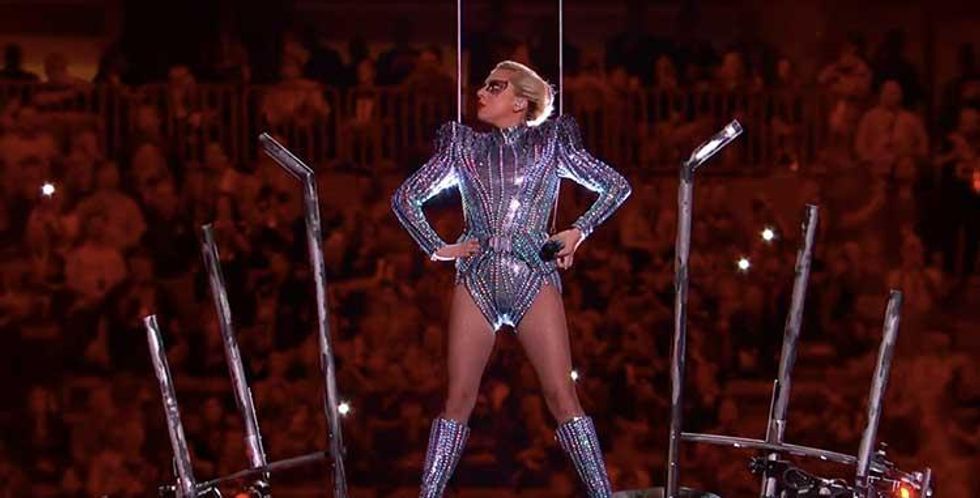
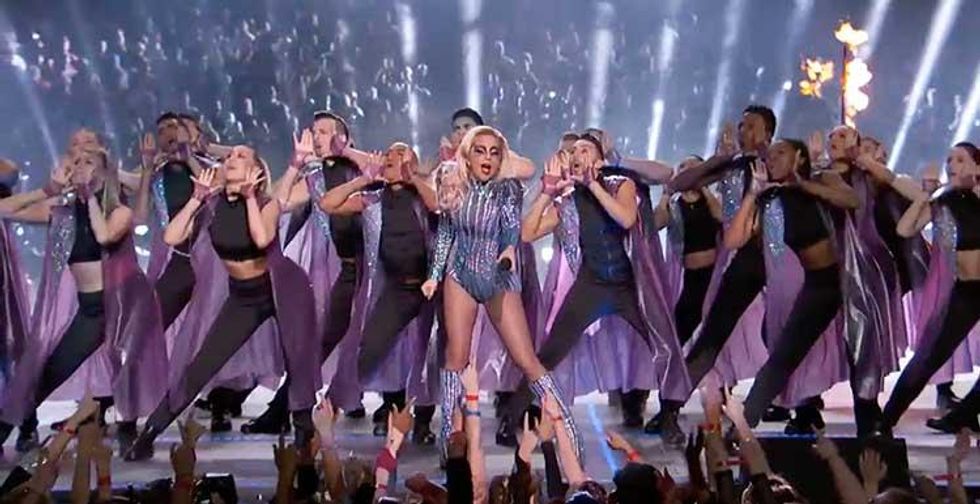
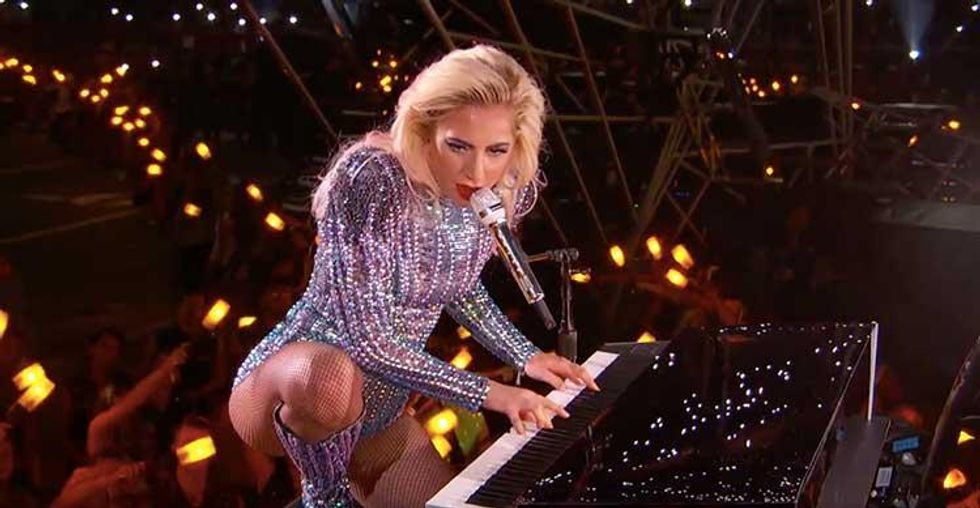
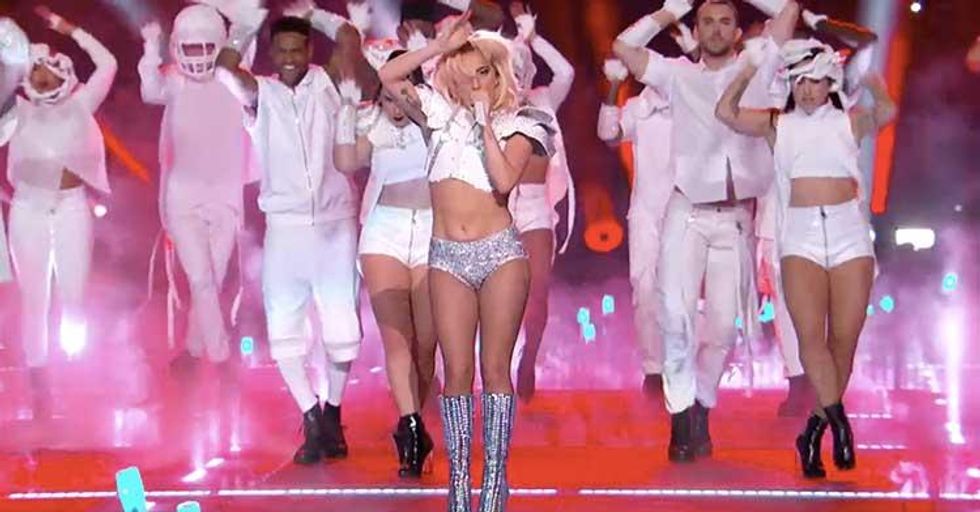




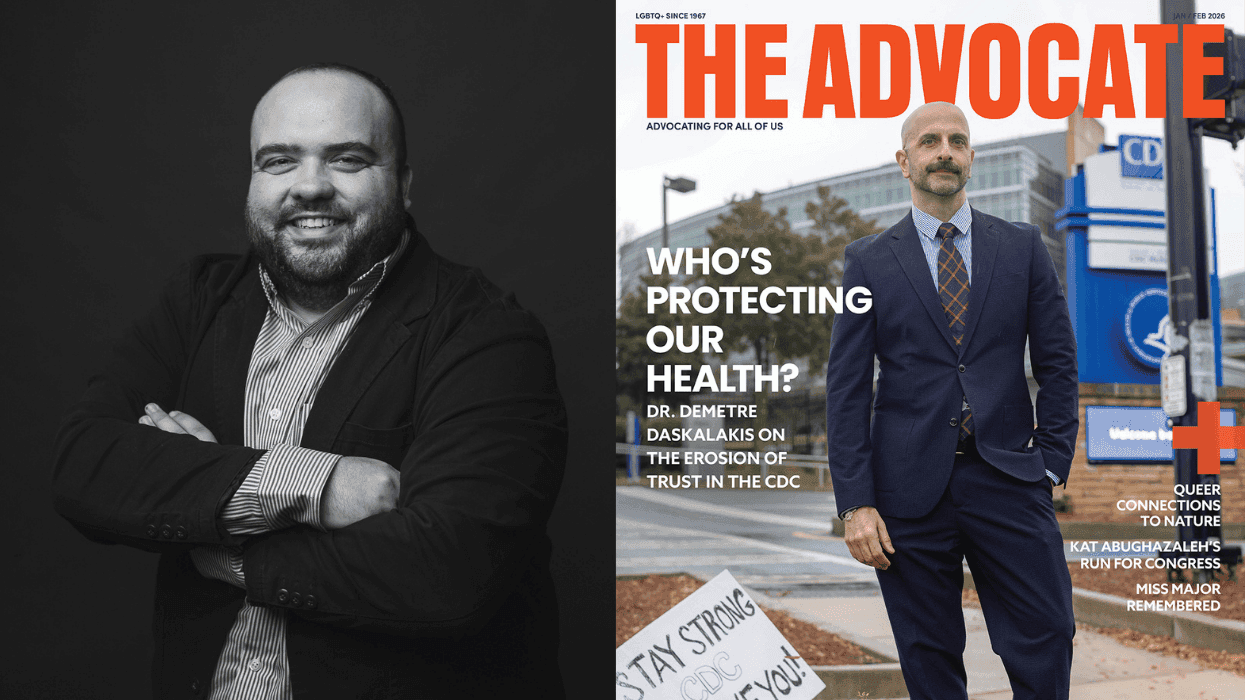









Charlie Kirk DID say stoning gay people was the 'perfect law' — and these other heinous quotes
These are some of his worst comments about LGBTQ+ people made by Charlie Kirk.